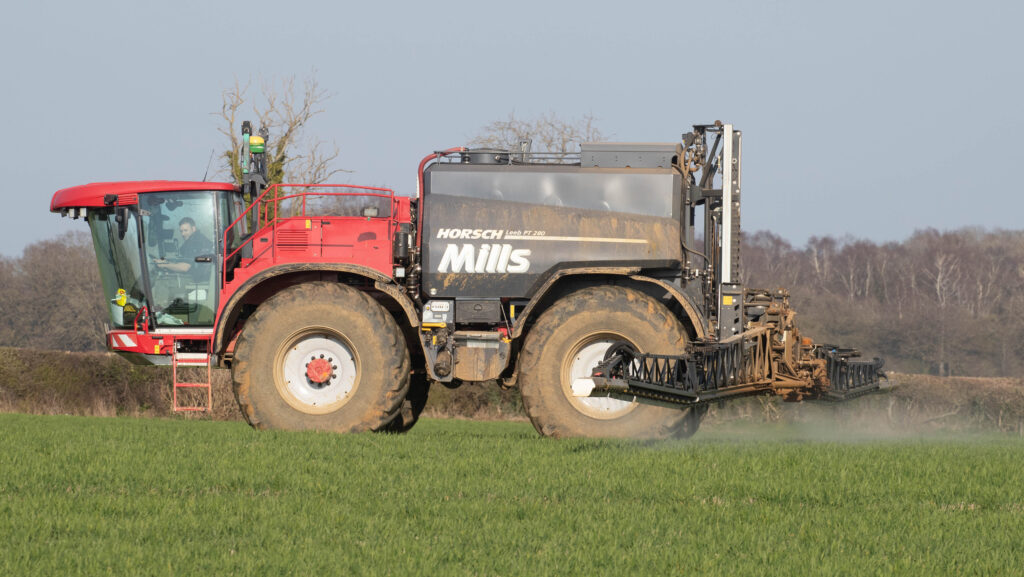Opinion: Time for a new approach to regulating biopesticides
 © Tim Scrivener
© Tim Scrivener The “emergency authorisation” of pesticides is often misunderstood.
Inherited from the EU, it was designed to allow regulators to adopt the precautionary principle, but to have the option of allowing controlled and judicious use of pesticides when essential.
The recent decision not to grant an emergency authorisation on the use of thiamethoxam in sugar beet, coupled with signals that the government intends to remove emergency authorisations altogether, makes it essential that ministers commit to modernising the current regulation of biopesticides.
Without change, there will be chronic loss of plant protection options, with major impacts on UK food production.
See also: Biostimulants – what they are and how farmers can use them
About the author

George Eustice is a former Defra secretary and a board adviser to Emerald Research, specialising in soil science and bio-products.
Biopesticides fall into three main categories. Firstly, there are those which use biochemical pheromones to deter certain insect pests, or to disrupt their reproductive cycle, or lure them to traps.
Secondly, there are beneficial bacteria and fungi, or natural biochemicals, that either boost the natural defences of a plant against fungal diseases or directly create defences for the plant.
Finally, there are “plant incorporated protectants”, where precision-breeding techniques can be used to breed traits into a plant to synthesise natural resistance to certain pests and diseases.
Legacy laws
Currently, UK policy on microbials and pheromones is governed by legacy EU laws, which makes little sense.
Biopesticides are regulated in very much the same way as synthetic chemical pesticides, even though they often use compounds that are well understood and often abundant in the natural environment and the human food chain.
But, as soon as a biological product makes a plant protection claim, it is forced through the same regulatory regime as synthetic chemicals.
In reality, the boundaries between good nutrition, a healthy soil biome and plant health overlap with crop protection objectives. There are no hard boundaries in our environment.
It is ridiculous to regulate biopesticides in the same way as synthetic chemical products, where new compounds with unknown long-term impacts are released into the environment.
In human health, it has long been established that traditional herbal medicines should be regulated very differently to pharmaceutical drugs, because they are naturally occurring compounds. There is a proportionate registration scheme for such products.
Through the Genetic Technology Act, Defra established a registration scheme for precision-bred organisms, which replaced outdated EU processes.
Modernised system
So, how might would a modernised system work for biopesticides?
A company seeking to bring a product to market could submit an application to the Health and Safety Executive for a marketing authorisation under a new biopesticide marketing authorisation scheme.
If the product was derived from naturally occurring compounds, they would be judged eligible for the registration scheme.
The process could be supported by the establishment of a “green list” of commonly used natural compounds in agriculture.
Following assessment for eligibility for the scheme, both the Food Standards Agency and the Advisory Committee of Releases to the Environment could carry out risk assessments on health and the environment respectively.
They could be asked to triage products into a light-touch “Tier 1” assessment, or a more detailed “Tier 2” assessment, just as it happens now with precision-breeding techniques such as gene editing.
The National Action Plan on pesticides is long overdue, but was always an opportunity to reset the approach on pesticides.
The current approach is out of date, at odds with the approach taken in other jurisdictions such as Canada and the US, and inconsistent with the modern UK approach for natural genetic resistance achieved using precision-breeding techniques. It is time for change.
George Eustice is a former Secretary of State at Defra and a board adviser to Emerald Research.
